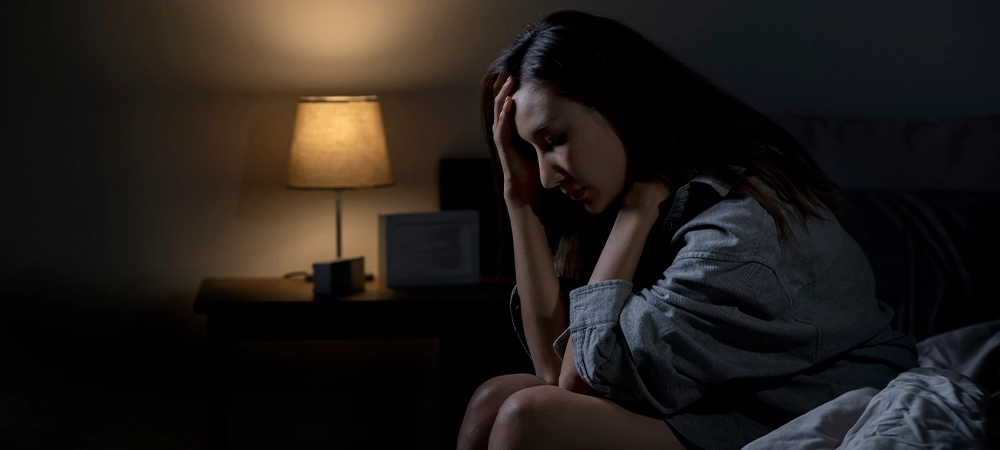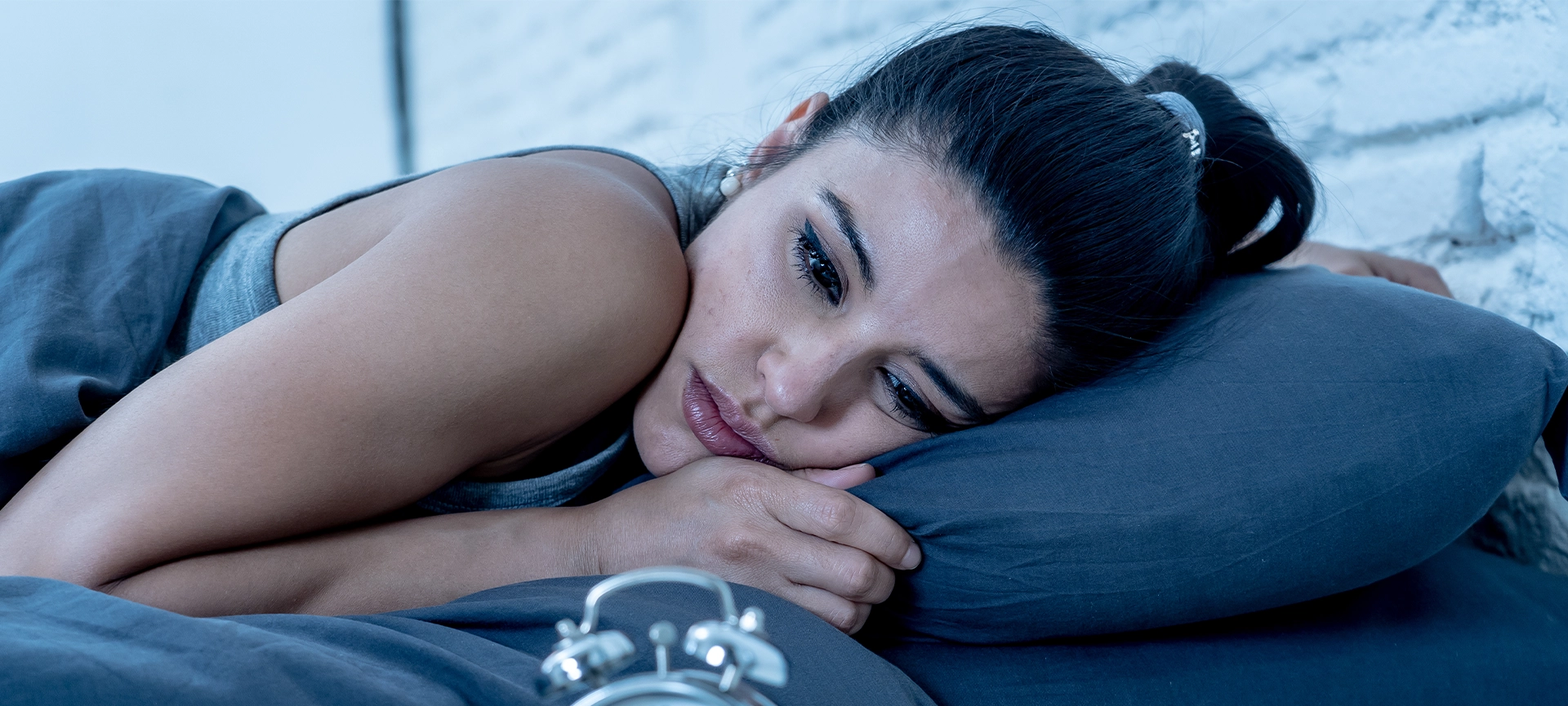Quitting weed isn’t easy. Aside from the mental and emotional challenges, your body goes through a lot, including disrupted sleep. It’s incredibly common to experience insomnia, strange dreams, or trouble staying asleep when you’re withdrawing from marijuana.
If you’re struggling to sleep while quitting weed, you’re not alone. But why is sleep important during this time?
Poor sleep can make withdrawal symptoms worse, increase cravings, and even lead to relapse. Prioritizing your sleep is a crucial step toward successful recovery and reclaiming your well-being.
Common Sleep Disturbances During Weed Withdrawal
Weed withdrawal can mess with your sleep in a few ways.
- Insomnia: Your body is used to relying on weed to relax, and without it, your mind might race, making it hard to unwind.
- Vivid Dreams/Nightmares: Some people experience incredibly intense, bizarre, or even disturbing dreams when quitting weed. This is thought to be linked to the brain’s REM sleep rebounding after being suppressed by regular cannabis use.
- Sleep Cycle Disruption: During withdrawal, your natural sleep-wake cycle can get thrown off. You might wake up in the middle of the night and struggle to fall asleep.
These sleep disturbances are not just random. They’re often linked to changes in brain chemistry and neurotransmitter activity that occur when you stop using weed. Your body is readjusting to functioning without the influence of THC or tetrahydrocannabinol, and this process can temporarily disrupt your sleep patterns.

Why Sleep Matters During Withdrawal
When you sleep, your body repairs itself, your immune system strengthens, and your brain processes and consolidates information.
During weed withdrawal, sleep becomes even more critical. It’s your body’s time to heal and reset. When you don’t get enough sleep, withdrawal symptoms like irritability, mood swings, and cravings can intensify. Your ability to cope with stress and make healthy choices can also be compromised.
Poor sleep can create a vicious cycle. You feel lousy from withdrawal, which makes it harder to sleep, which makes you feel even worse, and so on. This can easily lead to relapse, as you might turn back to weed in desperation for relief.
Prioritizing sleep is not just about getting a good night’s rest; it’s about giving your body and mind the best chance to recover and move forward.
Related Article: The Transformative Benefits of Quitting Weed: A Journey to Wellness
Tips for Overcoming Sleep Disturbances
Regaining control of your sleep during weed withdrawal takes time and effort, but it’s definitely possible. Here are a few tips to help you get started:
Regulate Your Sleep-Wake Cycle
Maintaining a regular sleep schedule is crucial for re-establishing a consistent sleep pattern. Aim to go to bed and wake up at the same time each day. This practice supports your body’s circadian rhythm, fostering improved sleep and facilitating restful nights and energized mornings.
Cultivate a Calming Pre-Sleep Ritual
In the hour or two before bed, wind down with calming activities. Read a book, take a warm bath, listen to soothing music, or practise gentle stretches. Avoid screens (phones, TVs, computers), as the blue light they emit can interfere with sleep.
By doing the same relaxing activities each night, you’re essentially training your body to associate them with sleep, making it easier to transition into slumber.
Optimize Your Sleep Environment
Think of your bedroom as a sleep sanctuary. Make sure it’s as dark, quiet, and cool as possible.
Blackout curtains block out unwanted light, while earplugs can muffle disruptive noises. Invest in a comfortable mattress and pillows that support your body and promote relaxation.
Avoid Stimulants and Alcohol Before Bed
Caffeine and alcohol might seem like they help you relax, but they can actually interfere with your sleep cycle. Caffeine can stay in your system for hours, making it harder to fall asleep, while alcohol can disrupt your sleep later at night.
Consider Natural Sleep Aids
Consider natural options if you’re seeking gentle ways to support your sleep.
Melatonin is a hormone that helps regulate sleep-wake cycles, and chamomile tea has calming properties that can promote relaxation.
Valerian root is another herb traditionally used to improve sleep quality. However, consult your doctor before taking any supplements, especially if you have any underlying health conditions.
Seek Professional Help if Needed
If your sleep problems are severe, persistent, or causing significant distress, don’t hesitate to reach out to a healthcare professional. Doctors and therapists can help you identify underlying sleep disorders and recommend appropriate treatments.
Cognitive-behavioral therapy for insomnia (CBT-I) is an effective therapy that teaches you strategies to improve your sleep.
Healthy Diet and Exercise
What you eat and how much you move matters. A balanced diet filled with fruits, vegetables, and whole grains can help stabilize your mood and energy levels, making it easier to wind down at night.
Regular exercise, even a brisk walk, can reduce stress and improve sleep quality. However, avoid intense workouts close to bedtime, as they can have the opposite effect.

Stress Management
Stress and sleep are closely intertwined. High-stress levels can make it difficult to fall asleep and stay asleep.
Finding healthy ways to manage stress, such as meditation, yoga, deep breathing exercises, or spending time in nature, can positively affect your sleep and overall recovery.
Support Groups and Therapy
Quitting weed is a personal journey, but you don’t have to do it alone. Connecting with others who understand what you’re going through can provide invaluable support and encouragement.
Support groups offer a safe space to share your experiences, challenges, and successes. Therapy can also be incredibly beneficial, providing you with tools to cope with cravings, manage withdrawal symptoms, and address any underlying mental health issues that might be contributing to your weed use.
Related Article:
Your Sleep, Your Recovery: Take Back Control and Find Restful Nights
Quitting weed can be tough, and the sleep disturbances that come with withdrawal can make it even tougher. But as you’ve learned, disrupted sleep is a common and temporary process.
You can overcome these challenges by establishing healthy sleep habits, optimizing your sleep environment, seeking support when needed, and reclaiming restful nights.
If you’re struggling with sleep or other aspects of weed withdrawal, we can help you. Addiction Rehab Toronto offers comprehensive treatment programs tailored to your individual needs. Our experienced team can provide the support, guidance, and resources you need to achieve lasting recovery.
Don’t let sleep disturbances derail your journey to a healthier, happier life. Take the first step today and contact us for a free, confidential consultation.







